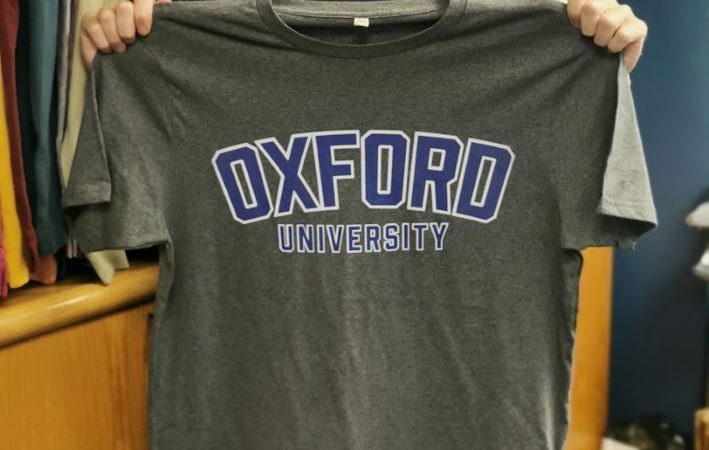Every two months Digital Textile Printer sends out an e-newsletter exploring all the latest news and developments from across the most exciting sector in print. The only way to make sure you receive all of our content, including interviews, case studies and analysis is by registering, which you can do HERE.
Oxford-based garment printer Shirtworks has celebrated its 35th birthday by reaffirming its commitment to ethical fashion and sustainability.
The company, which made its name selling Oxford University T-shirts to students and tourists, had words of warning for the wider industry however. Managing director Arron Harnden commented, ‘Back in the 80s, globalisation was sold to us as a win-win for everyone. Consumers in the West would get access to cheap products, and workers in developing countries would be given an opportunity to climb out of poverty through growing jobs in local farms, factories, and supply chains. One look at the fashion industry today and it’s clear to see something has gone drastically wrong.’
Mr Harnden went on to stress that his company is playing its part in turning the situation around. ‘As producers of ethical fashion, we aim to pay workers a fair wage for a fair day’s work in a clean, safe and dignified job,’ he said. ‘As well as considering the impact on the local environment when farming, producing and shipping clothing. The majority of fast fashion production sees poorly paid workers in unsanitised and dangerous conditions with forced overtime, exploitation and abuse. There is also little consideration for the environment, with thousands of tons of wastewater dumped every week leading to disastrous consequences for the environment. The Aral Sea in Central Asia for example has shrunk to just 15% of its original volume due to the vast quantity of water required for cotton production and dying.
‘We use Kornit Digital direct-to-garment (DTG) production system for sustainable, on-demand fulfilment suitable for lower volumes of garments we’d have traditionally screen-printed. DTG printing also allows us to print using water-based inks to avoid the use of PVC – oil based inks – which are harmful to the environment whereas our inks are all approved by the Soil Association.’
Shirtworks is certified by the Global Organic Textile Standard (GOTS), however the managing director said that ‘Unfortunately, it is not possible to survive as a business selling accredited garments only as the demand is still too low. Wherever possible, we encourage our customers to select from our ethical range, but we do know that it is not always possible, usually for budget reasons, so we also stock garments from credible and openly transparent factories who have high standards if not the full ethical audit and accreditation.
‘We have to move away from fast fashion, it’s damaging to people and the planet, there are viable and lucrative alternatives out there, we need to fix this industry now and turn it into a positive force for good.’
With the fashion industry is now the world’s second largest polluter Mr Harnden says that his company is ‘always looking at ways we can reduce our impact on the environment and one of the ways we do that is by stocking brands such as Stanley Stella, Fairshare, and Earth Positive. Garments with the Earth Positive logo range from T-shirts and tops to baby grows and totes bags, the logo means that all the energy used to create the garment came from renewable energy.’
Finally, in terms of its employees, Shirtworks has signed the Living Wage pledge to ensure that all its employees are paid fairly. It has also committed to both Fair Trade and Fair Wear so that it can guarantee that its garments are made by people who are treated fairly.

